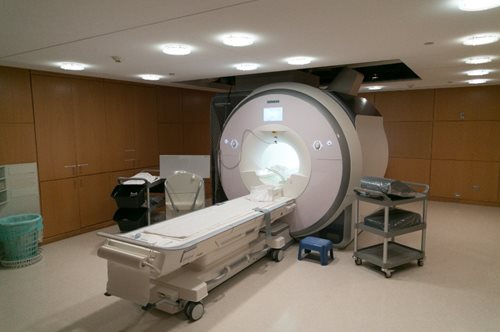Magnetic Resonance Imaging (MRI)
Magnetic resonance imaging (MRI) is a non-invasive brain imaging technique that uses radio waves and water molecules in the brain to construct images of the brain. MRI can see through the skull and convey a high level of detail about the brain, without any injection or radioactivity.
 MRI allows researchers to study multiple aspects of the aging brain. These range from the fibres that connect different parts of the brain to the blood vessels that sustain the brain and connect it to other areas of the body. Particularly powerful is MRI’s ability to map blood flow and oxygen use in the brain for early detection of dementia.
MRI allows researchers to study multiple aspects of the aging brain. These range from the fibres that connect different parts of the brain to the blood vessels that sustain the brain and connect it to other areas of the body. Particularly powerful is MRI’s ability to map blood flow and oxygen use in the brain for early detection of dementia.
MRI is used at Baycrest in all aspects of dementia research and is also used to study healthy cognitive functioning, late-life depression, traumatic brain injury, stroke and brain damage resulting from diabetes.
As well, scientists at Baycrest are pioneering the use of MRI to help evaluate and validate new brain therapies, helping to shorten the time it takes for research findings to be translated to practical applications.
Learn more about Baycrest research using MRI:
How does COVID-19 impact the brain?
Baycrest’s Canada Research Chair in Neuroimaging of Aging to deliver non-invasive brain health interventions